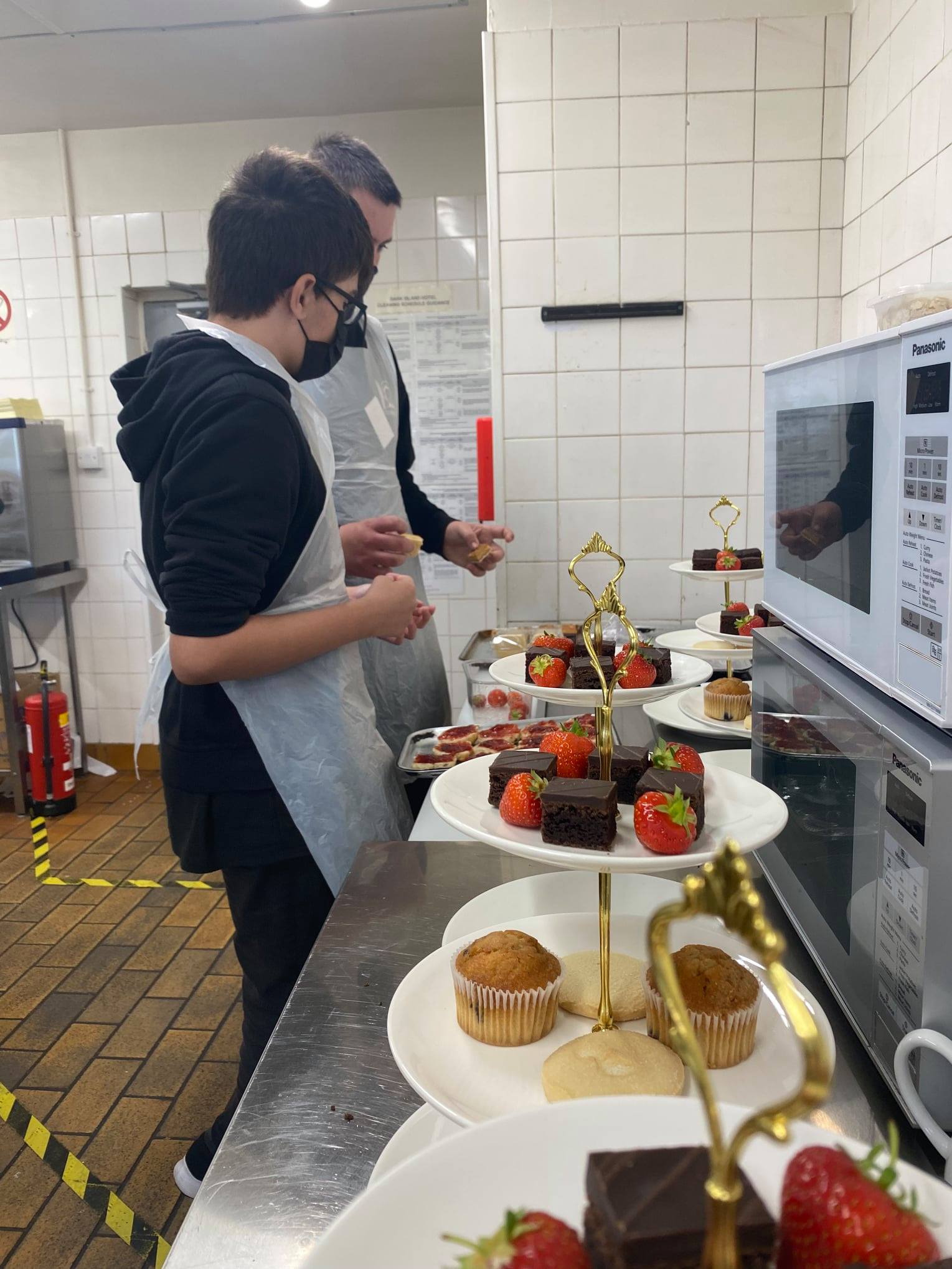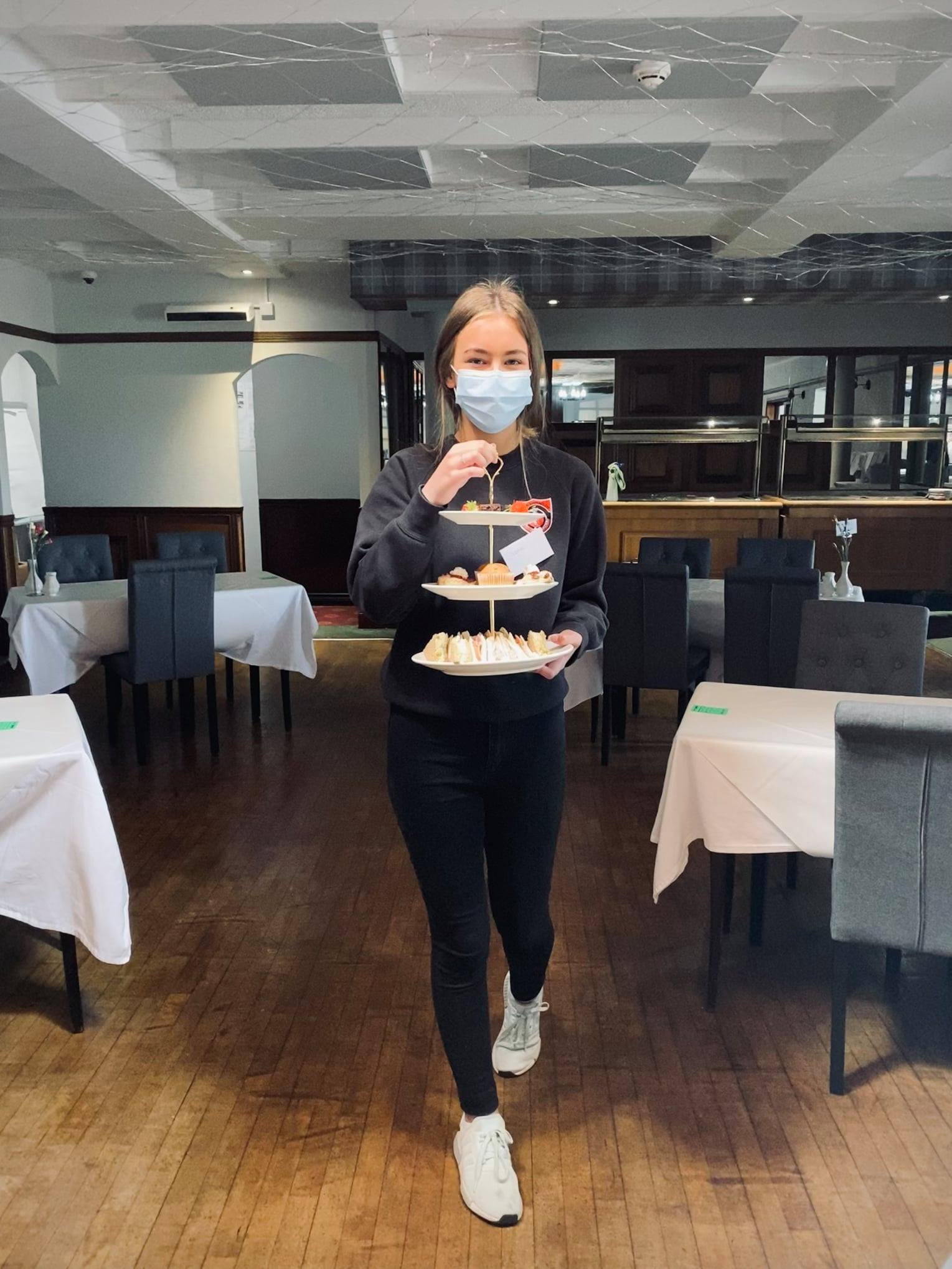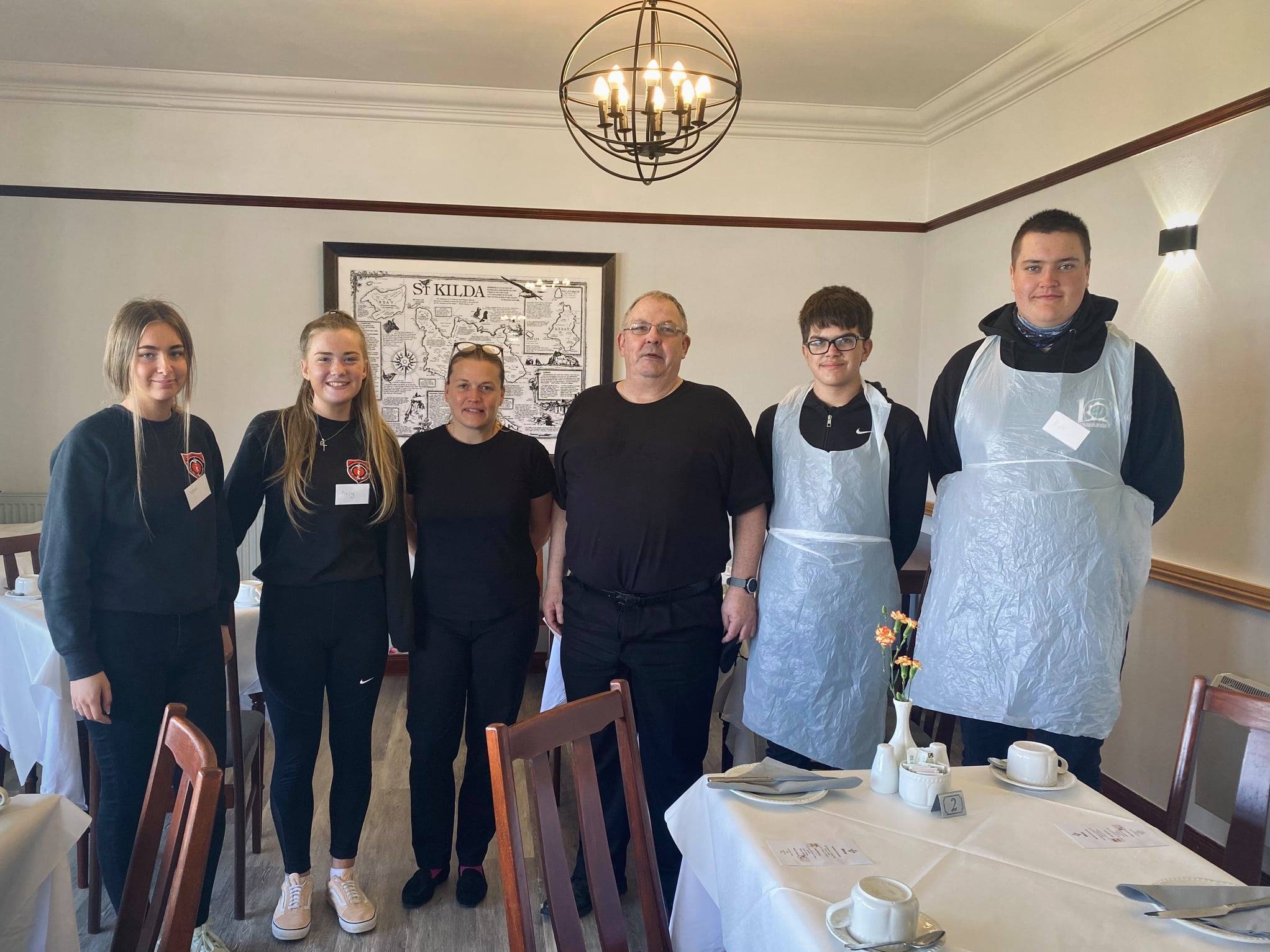Hospitality - Skills for Work
BROAD DESCRIPTION
Health and Food Technology Course enables learners to develop knowledge and understanding of the relationships between health, food and nutrition, and to make informed food and consumer choices. Learners develop practical and technological skills and apply safe and hygienic practices in practical food preparation.
The course has six broad and inter-related aims which allow candidates to:
- develop knowledge and understanding of the relationships between health, food and nutrition
- develop knowledge and understanding of the functional properties of food
- make informed food and consumer choices
- develop the skills to apply their knowledge in practical contexts
- develop organisational and technological skills to make food products
- develop and apply safe and hygienic practices in practical food preparation
The course uses an experiential, practical and problem-solving approach to learning, which develops knowledge and understanding, and practical skills. The course uses real- life situations taking account of local, cultural and media influences and technological innovations.
Homework
Learners will be expected to carry out further reading to consolidate their knowledge and understanding and to gain practice in answering techniques.
Learners will also benefit from practicing practical skills at home.
The Skills for Work Hospitality Course provides an introduction to the different commercial and non-commercial sectors of the hospitality industry and the types of provision they offer. Candidates will also learn about the organisational aims of hospitality establishments and the products and services they provide. Candidates will also have to opportunity to experience working in a professional kitchen and restaurant, learning about the different roles and responsibilities in the hospitality professions and developing their skills for work.



S1 to S3
In S1-S3 all pupils work on the Experience and Outcomes at Level 3 and Level 4 in all subjects.
Topics covered include:
S1 – Safety and Hygiene, Nutrition and Healthy Eating and Fabric Work
S2 – Dietary goals for Scotland and related cookery environment
S3 – Hospitality (Skills for Work)
National 4
There are 3 units:
- Food for Health.
- Food Product Development.
- Contemporary Food Issues.
- Added Value Unit.
National 5
There are 3 units and an assignment and question paper:
- Food for Health.
- Food Product Development.
- Contemporary Food Issues.
N5 EXTERNAL ASSESSMENT
This assessment has 2 components:
Component 1: question paper, 60 marks, 2 hours.
Component 2: assignment, 60 marks.
PROGRESSION PATHS
Higher Health and Food Technology course or relevant component units. SQA qualifications in health and food technology related areas. Further study, employment or training.

Hints for Success
Come to school prepared for practical activities, regular attendance and meeting deadlines for paperwork.
Pupils may be asked to bring one or two ingredients e.g. fresh veg and a box or dish to take their cooking home in.
The Higher Health and Food Technology Course addresses contemporary issues affecting food and nutrition and how they affect consumer choices. These include: ethical and moral considerations, sustainability of sources, and food production and development. Learners analyse the relationships between health, food and nutrition, and plan, make and evaluate food products for a range of dietary and lifestyle needs.
The Course assessment will consist of two Components: a question paper and an assignment.
Component 1: question paper is to assess the learner’s ability to integrate and apply knowledge, understanding and skills from across the Units.
This question paper will give learners an opportunity to demonstrate the following knowledge, understanding and skills:
- analysing the relationship between health, food and nutrition
- understanding the practical application of the functional properties of ingredients
- understanding a range of contemporary issues influencing food choice
- applying understanding of the food product development process
The question paper will have 60 marks, 2 hours, which is 50% of the total marks available for the Course assessment.
Component 2: the assignment is to assess the application of knowledge, understanding and skills from across the Units through a problem-solving approach.
Learners will use skills to research and analyse information regarding a food or consumer issue, and make a food product(s).
The assignment will give learners an opportunity to demonstrate the following knowledge, understanding and skills:
- applying a range of technological skills related to the production of a food product to meet specified health and/or consumer needs
- investigative and research skills
- organisational and management skills
- evaluation skills
The assignment will have 60 marks, out of a total of 120 marks. This is 50% of the total marks available for the Course assessment.